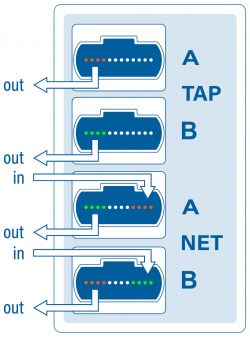Standard fiber TAPs
F1L-MOD / F1D-MOD / F1B-MOD / F1M-MOD / F1RL / F1PL / F4L / F8L / F1x3L / F1RLP / F3RLP / F6RLP / F1RS / F1PS / F2S / F1M4 / F2M4 / F4MY / F8MY / F1R-40BD / F3R-40BD
- Make the in-line connection between 2 network locations through the Network A and B ports, using appropriate cables and maintaining the in-out / Rx-Tx / ↑↓ connectivity for the ends of each fiber cable.
- Make the connection from the Monitor/TAP/out ports to the Rx ports of your monitoring equipment, using appropriate cables.
Note: Monitor/TAP/out A port outputs a copy of the traffic received on Network A, while Monitor/TAP/out B port outputs a copy of the traffic received on Network B.
Note 2: A TAP's monitor ports must be connected to the receive (Rx) ports of the transceivers on your monitoring system. One way to do this is to use simplex cables to connect each monitor output to a separate transceiver. Another way is using Y-cables.
Note 3: Optical fiber is sensitive to dust and other microscopic particles, which can disturb or block the signal. It is recommended to keep dust caps on unused connectors to reduce the risk of contamination. In case of weak signal, or lack of signal, the first remedial step should be to clean the cables and connectors using proper fiber optic cleaning equipment.
LC TAP port layout
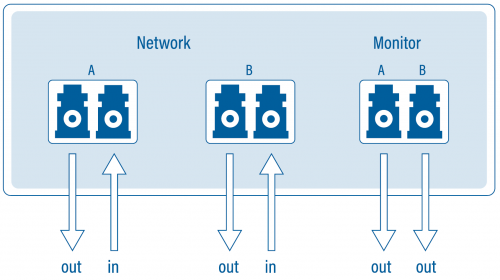
MTP TAP port layout (SR4)
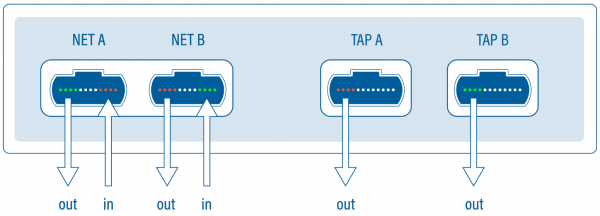
LC TAP module & LC DiodeTAP module port layout
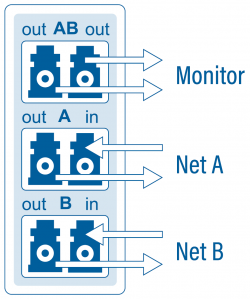
BiDi TAP module port layout
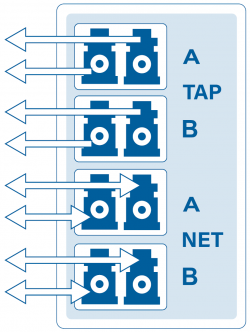
MTP TAP module port layout (SR4/PLR4/PSM4)
